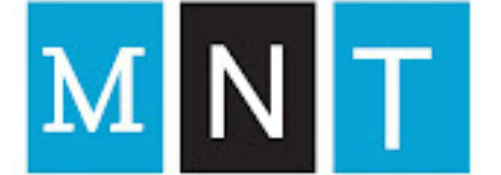WhatsApp Marketing involves using the messaging app WhatsApp to promote your products, services, or brand. It leverages the app’s popularity and wide reach to engage with customers, send promotional messages, and build relationships. Given that WhatsApp has over 2 billion users globally, it presents a significant opportunity for businesses to connect directly with their audience.
Key Features of WhatsApp Marketing
- Direct Communication: WhatsApp allows for direct, one-on-one communication with customers. This personal touch can enhance customer relationships and build trust.
- Multimedia Messaging: You can send text messages, images, videos, documents, and voice messages. This variety helps in creating engaging and interactive content.
- Broadcast Lists: Allows you to send a single message to multiple contacts at once. However, unlike groups, recipients cannot see each other, maintaining privacy.
- WhatsApp Business App: Designed specifically for small businesses, it offers additional features like automated messages, quick replies, and business profiles.
- WhatsApp Business API: For larger businesses, the API provides more advanced features, enabling integration with CRM systems and other business tools. It supports bulk messaging, transactional messages, and customer support.
Benefits of WhatsApp Marketing
- High Engagement Rates: WhatsApp messages have high open and read rates compared to emails and SMS, making it an effective channel for reaching your audience.
- Cost-Effective: Using WhatsApp for marketing is relatively inexpensive, especially compared to traditional marketing channels.
- Global Reach: With a vast user base worldwide, WhatsApp allows you to reach an international audience effortlessly.
- Rich Media Support: The ability to send images, videos, and documents makes it easy to share detailed information and promotional content.
- Real-Time Communication: Instant messaging facilitates real-time interactions, which can enhance customer service and support.
Strategies for Effective WhatsApp Marketing
- Build a Contact List: Start by gathering phone numbers of your customers with their consent. This can be done through your website, social media, or in-store promotions.
- Create a Business Profile: Set up a professional business profile with your logo, business name, description, address, and website link. This helps in building trust and credibility.
- Segment Your Audience: Segment your contacts based on factors like purchase history, preferences, and demographics to send targeted messages.
- Send Personalized Messages: Personalize your messages to make customers feel valued. Use their names and tailor content to their interests.
- Use Rich Media: Share product images, demo videos, promotional flyers, and other multimedia content to engage your audience.
- Automate Responses: Use the WhatsApp Business App’s automated messaging features to send instant replies to common queries and welcome messages.
- Provide Customer Support: Offer customer service through WhatsApp, allowing customers to reach you easily with their questions and concerns.
- Promote Exclusive Offers: Send special promotions, discounts, and exclusive deals to your WhatsApp contacts to drive sales.
- Gather Feedback: Use WhatsApp to collect customer feedback and reviews. This helps in improving your products and services.
- Analyze Performance: Track the performance of your WhatsApp marketing campaigns by monitoring metrics like open rates, response rates, and conversions.
Examples of WhatsApp Marketing Use Cases
- Product Launches: Announce new products or services directly to your customers with detailed descriptions and visuals.
- Order Confirmations: Send order confirmations, shipping updates, and delivery notifications to keep customers informed.
- Event Promotions: Promote upcoming events, webinars, or sales events and encourage participation through personalized invites.
- Customer Feedback: Request customer reviews and feedback to gain insights into their satisfaction and areas for improvement.
- Reminders: Send reminders for appointments, reservations, or important deadlines to ensure customers don’t miss out.
Conclusion
WhatsApp Marketing is a powerful tool for businesses to engage with their customers in a personal and direct manner. By leveraging its features and adopting effective strategies, businesses can enhance customer relationships, increase engagement, and drive sales. As with any marketing channel, it’s important to use WhatsApp responsibly and respect customer privacy by obtaining their consent and providing value in every interaction.
